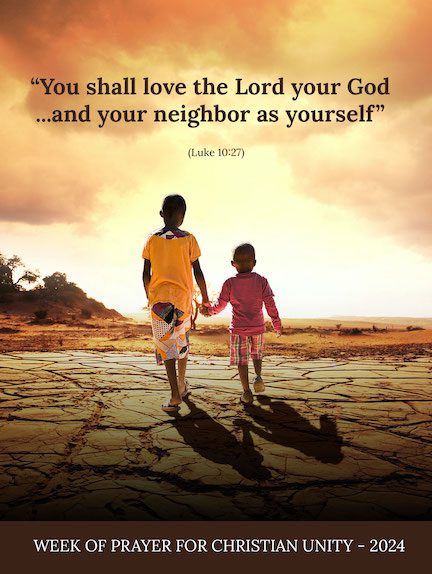
“You shall love the Lord your God… and your neighbor as yourself.”
Luke 10:27
The theme for the Week of Prayer for Christian Unity in 2024 was selected by the Pontifical Dicastery for Promoting Christian Unity, the World Council of Churches, and the Christian Churches in Burkina Faso, coordinated by the community of Chemin Neuf, a French Catholic and ecumenical community of vowed and lay people and its local community in Burkina Faso.
The theme, taken from the first chapter of the Gospel of Luke, reflects the connection between love of God and love of neighbor with a particular concern for challenging the boundaries of who is considered “neighbor”. In this pericope, Jesus is questioned as to the path to eternal life. His answer is not to only observe the commandments, but to also imitate the love of God in the giving of self for another. It is a call for charity, mercy, justice, and unity.
Week of Prayer for Christian Unity: Celebrating gifts while focused on goal
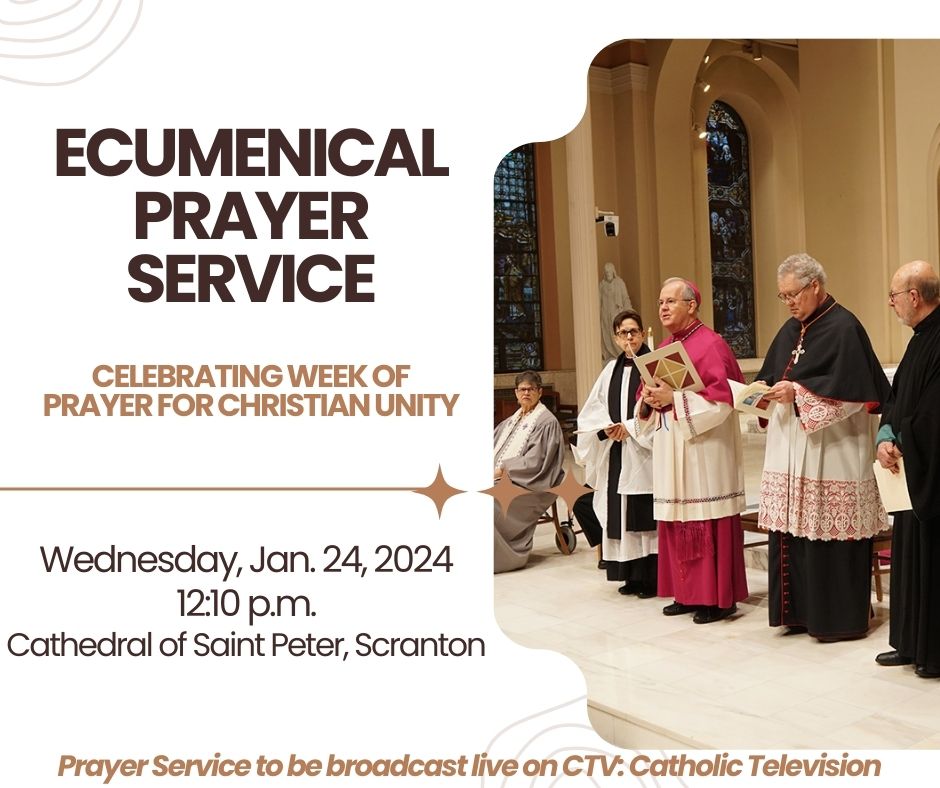
Faithful throughout the Diocese of Scranton will join with members of various Christian congregations of northeastern Pennsylvania for an Ecumenical Celebration of the Word of God on Wednesday, Jan. 24, 2024, at 12:10 p.m. in the Cathedral of Saint Peter.
The event highlights the annual Week of Prayer for Christian Unity which has been celebrated each January since its inception in 1908.
The theme for the 2024 celebration is: “ You shall love the Lord your God … and your neighbor as yourself” (Luke 10:27).
The Most Rev. Joseph C. Bambera, Bishop of Scranton, will serve as leader of prayer for the traditional ecumenical prayer service. Bishop Bambera is once again serving as Chairman of the U.S. Bishops’ Committee on Ecumenical and Interreligious Affairs.
Guest homilist for this year’s prayer service is Reverend Rebecca A. Barnes, Rector of Saint Luke Episcopal Church, Scranton, and President of the Scranton Multifaith Ministerium.
Students from Holy Rosary School in Duryea will provide the music for the religious gathering, under the direction of David Tighe.
The Ecumenical prayer service will be broadcast live at 12:10 p.m. on CTV: Catholic Television of the Diocese of Scranton. It will also be made available on the Scranton Diocese website and across all diocesan social media platforms.
As the universal Catholic Church, including local dioceses, immerses itself deeply into the call for a new evangelization proclaimed by Pope Francis through the 2023 Synod on Synodality, both ecumenism and interreligious dialogue have been given prominence in the discussion.
In the Vademecum for the Synod on Synodality, the Official Handbook for Listening and Discernment in Local Churches, it is stated: “The dialogue between Christians of different confessions, united by one baptism, has a special place in the synodal journey.”
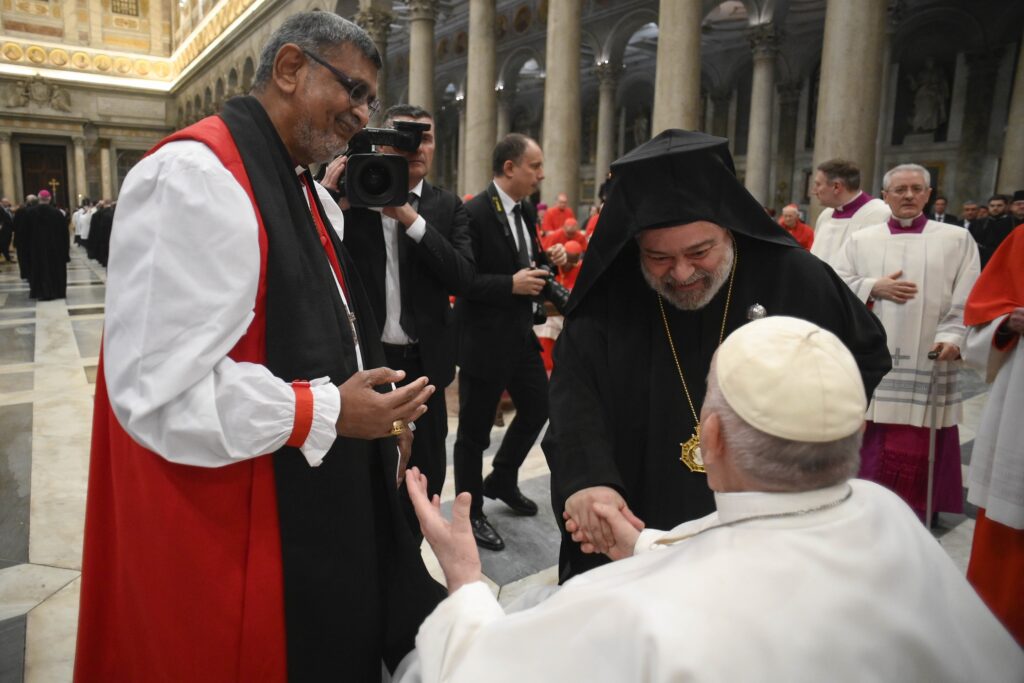
According to Monsignor Vincent Grimalia, Diocesan Coordinator for Ecumenical and Interreligious Affairs, the Week of Prayer for Christian Unity provides not only an opportunity for prayer for Christianity, but a time to learn more about various Christian churches and communities while offering motivation and commitment for year-long participation in ecumenical activities.
“It is an opportunity to renew and re-energize our commitment to Christian unity,” Monsignor Grimalia said. “In a world with so much disunity, there is a need to overcome divisions and polarization and work to get nations and various ethnic, cultural and language groups to work together.”
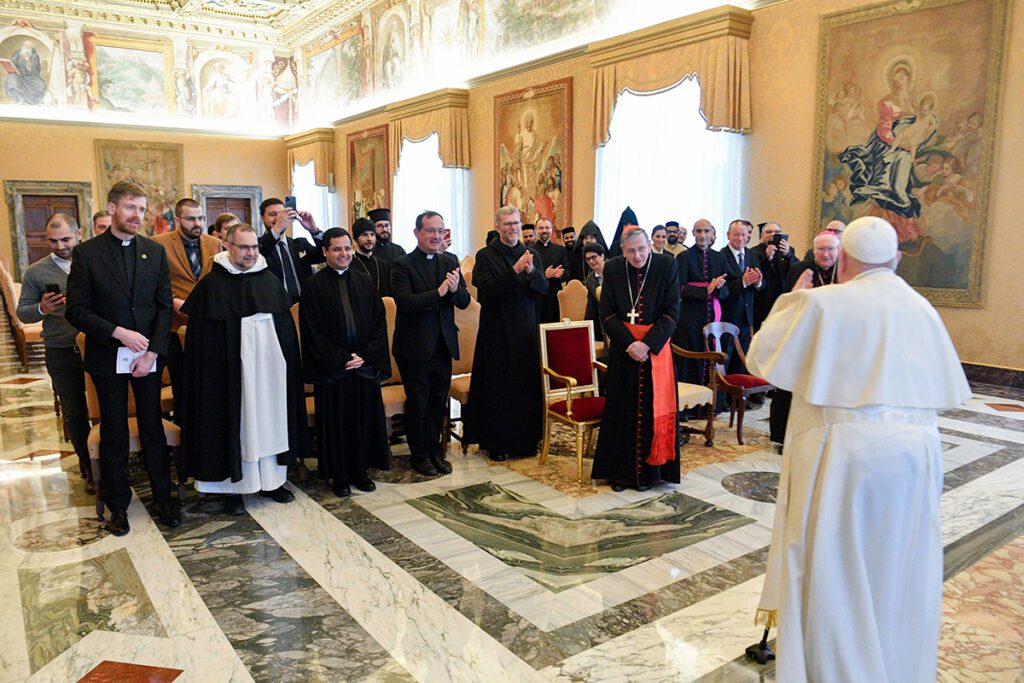
Saint John Paul II, in his encyclical Ut Unum Sint, quotes from the Second Vatican council.
He wrote, “This statement of the Decree Unitatis Redintegratio is to be read in the context of the complete teaching of the Second Vatican Council. The Council expresses the Church’s decision to take up the ecumenical task of working for Christian unity and to propose it with conviction and vigour: “This sacred Synod exhorts all the Catholic faithful to recognize the signs of the times and to participate actively in the work of ecumenism.”
Saint John Paul reflects on the necessity of prayer and dialogue among elements of ecumenism and reminds everyone of its importance because Jesus prayed for unity of his followers.
He continued, “All this is extremely important and of fundamental significance for ecumenical activity. Thus it is absolutely clear that ecumenism, the movement promoting Christian unity, is not just some sort of ‘appendix’ which is added to the Church’s traditional activity. Rather, ecumenism is an organic part of her life and work, and consequently must pervade all that she is and does; it must be like the fruit borne by a healthy and flourishing tree which grows to its full stature.”
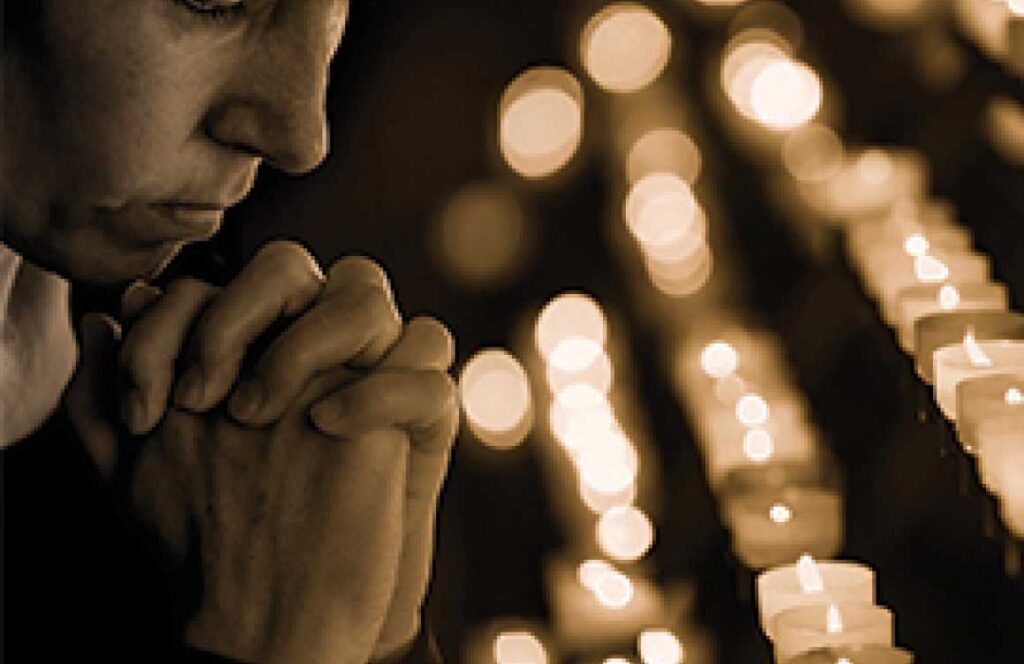
He answered, “You shall love the Lord your God with all your heart, and with all your soul, and with all your strength, and with all your mind; and your neighbor as yourself.” (Lk 10:27)
Scripture
Deuteronomy 10:12-13
Psalm 133
Meditation
The answer the lawyer gives to Jesus may seem simple, drawn from the well-known commandments of God. However, to love God in this way and our neighbors as ourselves can often be difficult.
God’s commandment to love him requires deep commitment and means abandoning ourselves entirely, offering our hearts and minds to serve God’s will. We can ask for the grace to follow Christ’s example, he who offered himself up completely and said, “Not my will but yours be done.” (Lk 22:42). He also manifested his great love to all, including his enemies. We do not get to choose our neighbors. Loving them means being attentive to their needs, accepting their imperfections and encouraging their hopes and aspirations. The same attitude is needed on the path of Christian unity, with regard to one another’s different traditions.
Prayer
Lord, give us the grace to know you more deeply, in order to love you with all of our being. Grant us a pure heart, to love our neighbors as ourselves. May the gift of your Holy Spirit enable us to see your presence in our sisters and brothers, that we may love each other with the same unconditional love with which you love us. Through Christ our Lord. Amen.
